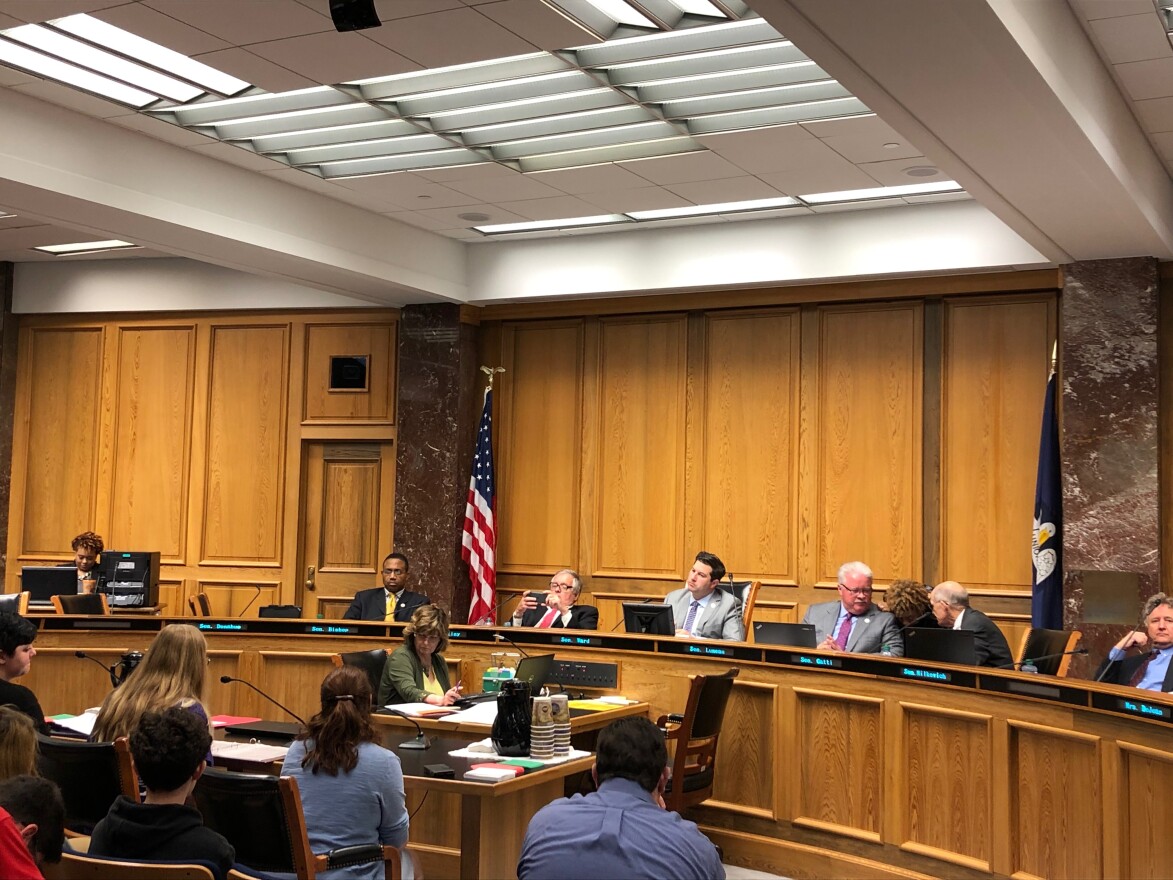Tort reform, was a huge issue in last year's elections, and is a key policy goal Republicans now that they have strengthened their majorities in the Louisiana Legislature.
The GOP pitches tort reform as a silver bullet to reduce Louisiana's car insurance rates-- the second highest in the nation. Critics say it wouldn't.
The debate is playing out as a political tug-of-war between trial lawyers and the business lobby, two of the state's most influential special interests.
Mark Ballard, Capitol Bureau Editor for The Advocate, discusses the legislature's previous attempts to enact tort reform and how they will approach the controversial issue in the 2020 Regular Session.
Q: Let's start with a recap. Last year the debate centered around the so-called "Omnibus Premium Reduction Act." What are some of the things that it proposed?
Well it was an omnibus bill that basically proposed what we call a prescription. Instead of having one year to file your lawsuit, it would become two years, because it basically allows for an additional year to come up with a settlement idea.
They also wanted to keep plaintiffs from naming the insurance company in the lawsuits. So, if you hit me, I would sue you, and your insurance company would take care of it.
They also wanted a [lower] jury threshold. Right now it's about $50,000...
Q: And they propose to bring that threshold down to $5,000...
Yes, what that would mean is that you would have a jury trial, or the ability to have a jury trial for more of these fender bender-type lawsuits.
And they also wanted to kind of credit the medical care that you receive as a victim of a car accident.
Q: And is it clear if any of those changes would actually reduce premiums?
Well, you mentioned critics, but it wasn't just critics. It was the insurance industry themselves that said, "No, this would not lower insurance premiums in Louisiana." There was a whole slew of other reasons why our premiums are higher. The amount of litigation was way down on that list.
Q: With that in mind, how did this particular bill, and tort reform in general, fare in the legislature last year?
Well, the House basically bought into, "If we pass this bill, then our insurance rates will get lowered." And they passed it overwhelmingly.
It went to the Senate and was put in the Senate Judiciary A Committee. They looked at it a little differently. They brought up the fact that the insurance companies themselves said this is not going to lower the rates all by itself.
The task force that was behind the legislation in the House actually did an actuarial report in which these insurance experts say, you know, what does this mean? And they also found that it wasn't going to lower the rates. It just sort of died away at that point.
The moment that it was killed in the Senate Judiciary Committee, I talked to the sponsor of the bill, Kirk Talbot, R-River Ridge. He made it very clear that it was political and that it was going to come up during the campaigns, which it did.
Q: Let's talk a little bit about that. Eddie Rispone hammered Edwards on this particular issue on the debate stage and on the airwaves. What role did tort reform play in the messaging in the governor's race and then farther down the ballot?
I mean, it played a role because I think it's one of the touchstone issues that energizes the Republican base. And that's why Mr. Rispone went after it so heavily. But down the ballot, in the legislative races, that's where it really made an impact.
LABI...
Q: That's the Louisiana Association for Business and Industry...
Put a lot of money into candidates for the legislature that would support an omnibus tort reform bill. They elected quite a few people, and I think that's going to flavor what's happening in this upcoming session because you have a vast majority of Senators and Representatives that bought into that tort reform legislation idea.
Q: And you saw [tort reform] used as a wedge within the Republican Party. There are some examples-- Senator [Ryan] Gatti lost a reelection campaign in North Louisiana to Robert Mills, largely because of votes in line with the governor's policies, and on tort reform...
It think it was mostly tort reform, frankly. Senator Gatti was the guy that held up the actuarial report in committee and said, "Look, this report that you paid for says that it won't save money." And that was a persuasive moment when Judiciary A went against tort reform.
Q: So what's the outlook for tort reform this year?
I think it's going to get passed in some way or form. There are certain parts of it that the trial lawyers would be amenable to, that the governor would be amenable to, and there are other parts that would not. If they do the whole thing in one fell swoop, then you may end up seeing a veto and then a fight over a veto override.
Copyright 2021 WRKF. To see more, visit WRKF. 9(MDA4NjIwNTkwMDEzMjI4NDY0MjY4ZTBlNA004))





